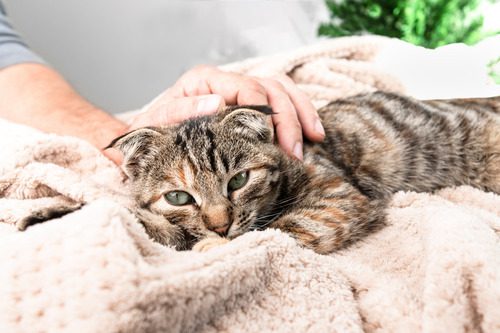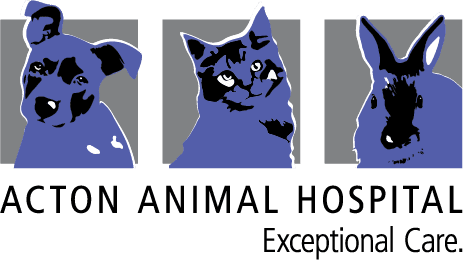Sinus infections in cats can be easy to miss in the early stages, especially when symptoms resemble those of a common cold. However, if your cat seems congested, is sneezing frequently, or has watery eyes that don’t clear up, there may be more going on than seasonal allergies. A cat sinus infection can affect their comfort and quality of life, and the longer it goes untreated, the more uncomfortable it can become. If you live in Acton, MA, and notice any unusual changes in your cat’s breathing, appetite, or behavior, it may be time to consult with your veterinarian. Acton Animal Hospital is here to help you navigate potential health concerns so your cat can get back to feeling their best. Please call 978-263-7477 to schedule an appointment.

What Is a Cat Sinus Infection?
A cat sinus infection occurs when the sinuses become inflamed due to bacteria, viruses, or fungi. The sinuses are air-filled cavities in the skull, and when they’re functioning properly, they help regulate airflow and filter out particles. When inflammation occurs, the lining of the sinuses swells, and mucus builds up. This makes it harder for your cat to breathe comfortably and can lead to additional symptoms like nasal discharge or facial swelling.
Who Is Most at Risk?
Sinus infections in cats may develop on their own or be part of a broader upper respiratory infection. They can affect cats of all ages, but young kittens, seniors, and cats with weakened immune systems tend to be more vulnerable.
Why Prompt Treatment Matters
While sinus infections aren’t usually life-threatening, they can cause significant discomfort and may worsen without timely veterinary care. Chronic infections can even lead to more serious complications, such as permanent nasal damage.
Common Symptoms of a Cat Sinus Infection
Because the signs of a cat sinus infection can be subtle at first, it helps to know what to look for. Your cat may show one or several of the following symptoms. If these symptoms persist beyond a few days, schedule an exam at Acton Animal Hospital by calling 978-263-7477.
Nasal Discharge
The discharge can be clear, yellow, green, or even blood-tinged. Discharge from both nostrils may indicate a sinus infection, while one-sided discharge could point to a nasal obstruction or foreign object. Cats often lick their noses frequently, so a runny nose may not always be easy to see. However, if you notice crusting around the nostrils or frequent wiping of their face, this may be a sign of excess nasal drainage.
Sneezing and Noisy Breathing
While occasional sneezing isn’t unusual, repeated bouts over several days may signal something more serious. You might also hear your cat breathing noisily or see them breathing through their mouth if nasal congestion is severe. Labored or open-mouth breathing in cats can indicate respiratory distress. If this happens, contact your veterinarian immediately.
Eye Discharge and Squinting
Because the sinuses are located near the eyes, inflammation can affect the tear ducts. You might notice watery or thick discharge coming from one or both eyes. The area around the eyes may appear red or irritated, and your cat may squint or blink frequently. These symptoms are often seen alongside nasal discharge and sneezing. If your cat’s eyes seem swollen or painful, prompt veterinary care is essential.
Facial Swelling or Tenderness
Swelling around the cheeks, nose, or under the eyes can sometimes occur with a cat sinus infection. This may indicate that the infection has spread or become more severe. Your cat might flinch when touched in these areas or seem more withdrawn than usual. Facial swelling should always be evaluated by your veterinarian, as it could also suggest a dental problem or abscess.
Decreased Appetite and Lethargy
Cats rely heavily on their sense of smell to stimulate appetite. If their nasal passages are blocked, they may eat less or stop eating altogether. A cat sinus infection can also make your pet feel generally unwell, leading to lethargy or reduced interest in play and interaction. If your cat seems tired and isn’t eating normally, it’s time to schedule a checkup. Call Acton Animal Hospital at 978-263-7477 to book an appointment.
Coughing or Gagging
Postnasal drip caused by a cat sinus infection can sometimes lead to coughing or gagging. Mucus dripping down the throat can irritate the airway, especially if the infection is prolonged. Though less common than other symptoms, these signs can appear as the condition progresses. Persistent coughing should always be evaluated by your veterinarian, especially if it interferes with your cat’s breathing or sleep.
Causes of Cat Sinus Infections
A variety of factors can contribute to a cat sinus infection. Pinpointing the cause helps your veterinarian decide how to move forward with diagnosis and treatment.
Viral Infections
Feline herpesvirus and calicivirus are two of the most common viral infections that lead to sinus issues in cats. These viruses are highly contagious among cats and can be a recurring problem, especially in multi-cat households or shelters.
Bacterial Infections
Bacterial infections often develop after a viral illness weakens the immune system. When the natural defenses of the nasal passages break down, bacteria have an opportunity to grow and cause inflammation.
Fungal Infections
Though less common, fungal infections such as cryptococcosis can lead to chronic sinus problems. These infections are more likely to occur in immunocompromised cats and may require more intensive diagnostic testing.
Allergies and Environmental Irritants
Allergens like dust, pollen, or household chemicals can inflame your cat’s nasal passages and make them more susceptible to infection. Chronic exposure to smoke or strong odors can also play a role.
Dental Disease
Because of the close connection between the sinuses and upper teeth, dental infections can sometimes extend into the sinuses. Tooth root abscesses are a known cause of sinus infections in cats, particularly those affecting the upper jaw.
When Is It Necessary to See Your Veterinarian?
If your cat shows any signs of a sinus infection that last longer than a few days, it’s time to call your veterinarian. Some symptoms, like facial swelling, open-mouth breathing, or a complete loss of appetite, require more immediate attention. Even if the symptoms seem mild, early evaluation can prevent the infection from becoming more serious. Sinus infections are uncomfortable for cats, and without proper care, they can linger or return frequently. Your veterinarian at Acton Animal Hospital can examine your cat, determine the cause of their symptoms, and recommend next steps. Diagnostic tests like X-rays or nasal swabs may be necessary to pinpoint the issue. Please call 978-263-7477 to make an appointment.
Helping Your Cat Breathe Easier
No one wants to see their cat uncomfortable, especially when the problem affects their breathing and daily activities. A cat sinus infection can cause a range of symptoms that impact how your cat eats, sleeps, and interacts with their surroundings. If your cat has a runny nose, persistent sneezing, or other signs mentioned above, it’s important to take action. The team at Acton Animal Hospital is committed to supporting the long-term health of cats in Acton, MA, and surrounding areas. We’ll work with you to identify the source of your cat’s sinus issues and offer the right care path forward. To schedule an appointment, please call 978-263-7477 today.
Recent Posts
About Us
Our veterinarians in Acton, MA bring over 80 years of combined experience and a multitude of services for your pet.
